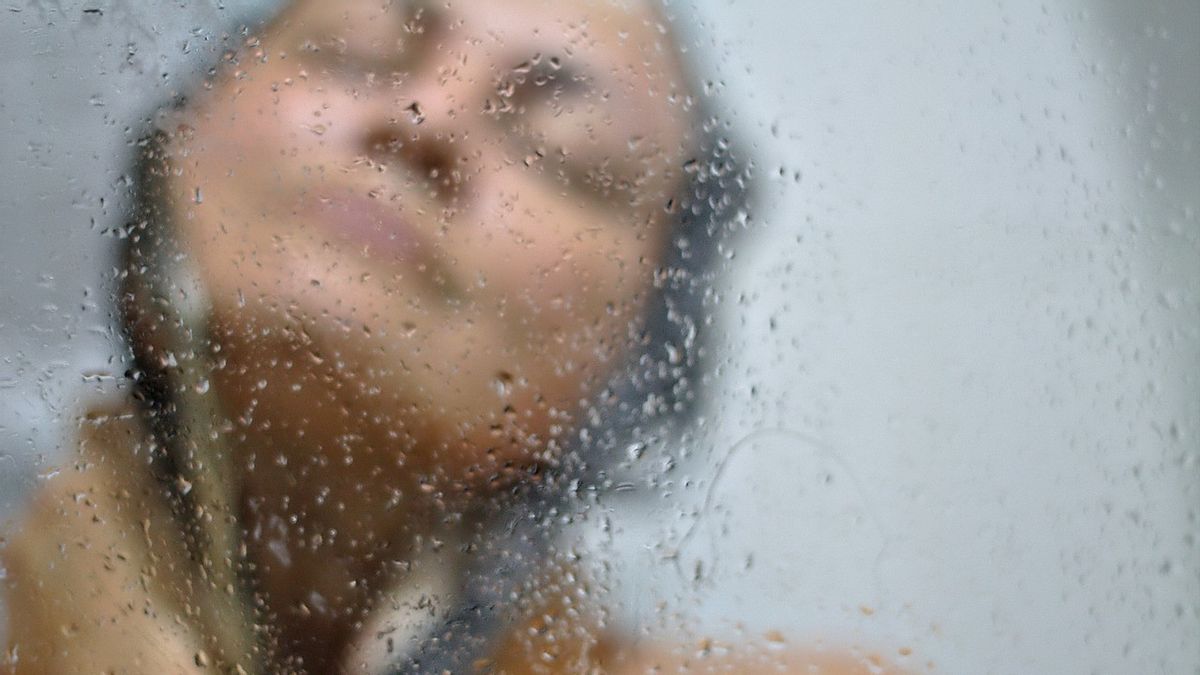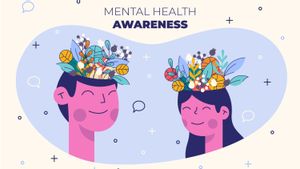JAKARTA - The figure of Gobind Vashdev stole the public's attention. He admitted that he had never used soap while bathing. The lifestyle called sustainable living has been done since the last 15 years.
This confession clearly made the public shocked. Because maybe almost everyone uses soap to clean the body while bathing. Not only soap, shampoo and toothpaste are also commonly used by people.
Then when Gobind Vashdev's confession appeared that he no longer wore non-natural soap for a decade, the first question in the head was of course a matter of cleanliness and body odor that could arise.
Not without reason Gobind Vashav finally decided to release himself from soap. The man who is also a motivator admits that he feels sorry because the soap foam and shampoo he uses pollutes nature.
Starting from the awareness to'repay kindness' to that nature, Gobind finally took off soap and shampoo to clean the body. He began to realize that the soap he used actually polluted the soil through his experience while still living in Ubud, Bali.
"Before when I took a shower and opened the window, I saw the rice fields. Then I thought, this rice field is really good, then I took a shower, I felt clean, I felt fragrant, but then the land became dirty," said Gobind, quoted from the Instagram account @gobindvashdev.
He said cleanliness is part of faith. If I am clean, but then the environment is dirty, is this what it means?
What is the question of many people, does bathing without soap not cause body odor? This may be a question that people ask, because one of the purposes of bathing is to remove dirt and smell.
Gobind emphasized that so far many people have misunderstood that body odor comes from sweat. In fact, according to him, sweat is sterile, while what triggers body odor is bacteria in the skin.
He explained that bacteria in the skin are identical to bacteria in the intestines, and bacteria in the intestines develop according to the food we consume.
"Even if that happens (the smell) there is a natural ingredient that can be used to remove it, there is no need to use chemicals," Govind explained, quoted on Melaney Ricardo's YouTube channel.
Meanwhile, quoted byhealthline, people don't actually need to shower every day. Even though it sounds counterproductive, bathing every day can actually have a bad impact on the skin.
Some dermatologists even recommend taking a shower only two to three times a week, "saidhealthline.
The same thing was also expressed by a dermatologist from Boston Dr. Ranella Hirsch. According to him, bathing every day is done by many people today only because these are the norms that apply in society.
اقرأ أيضا:
According to Dr. Ranella, bathing every day not only makes the skin dryer but also throws away essential oils that protect the skin.
However, regarding the recommendations for not bathing every day, it still needs to be adjusted to personal conditions until the weather in a country. For example, if someone lives in a country for four seasons, the skin will become drier in winter so that too often bathing has the potential to worsen dry skin.
Meanwhile, bathing every day in the summer does not necessarily have a negative effect on the skin, as happens in tropical countries such as in Indonesia.
What Gobind did to reduce the use of soap because he was worried that it would pollute the rice fields near him, it could be said, including implementing sustainable living.
Sustainable middle life has become a popular lifestyle in the past few years. Simply put, sustainable living or sustainable life is an environmentally friendly lifestyle.
The purpose of sustainable living is to meet daily needs while still minimizing the bad effects on the environment and maintaining the balance of the ecosystem.
One of them is by reducing soap and shampoo waste. In Government Regulation of the Republic of Indonesia Number 82 of 2001 concerning Water Quality Management and Water Pollution Control, it is explained that liquid waste is the remainder of a business or activity that has a liquid form.
Quoting the severity of viral.com, there are four groups of liquid waste classification, namely domestic liquid waste, industrial liquid waste, seepage and overflow, and rainwater. Meanwhile, soap and shampoo are included in the domestic liquid waste group, namely liquid waste produced from housing, buildings, offices, or trade.
Soap waste can damage the environment and disrupt the balance of the exosystem if not handled properly. Among the bad effects resulting from soap waste is water eutrophication and a sustainable water crisis.
Euphofication is a water pollution in which substances that are needed by living things, such as nutrients and nutrients, appear excessive in the water ecosystem. Soap waste mixed into the water can cause hyacinth growth above the water surface.
As a result, the circulation of oxygen and sunlight needed by water biota will decrease. If left continuously, this will threaten the balance of the ecosystem in the water which eventually causes the extinction of water biota, "quoted from araenvirontal.com.
In addition to triggering water eutrophication, careless disposal of soap waste can also cause a sustainable water crisis. Water contaminated with soap waste contains chemical compounds that are harmful to health and the environment.
When a water source is polluted by waste, people lack clean water for their daily needs. In the aftermath, it is not impossible that there will be a prolonged water crisis.
The English, Chinese, Japanese, Arabic, and French versions are automatically generated by the AI. So there may still be inaccuracies in translating, please always see Indonesian as our main language. (system supported by DigitalSiber.id)


















